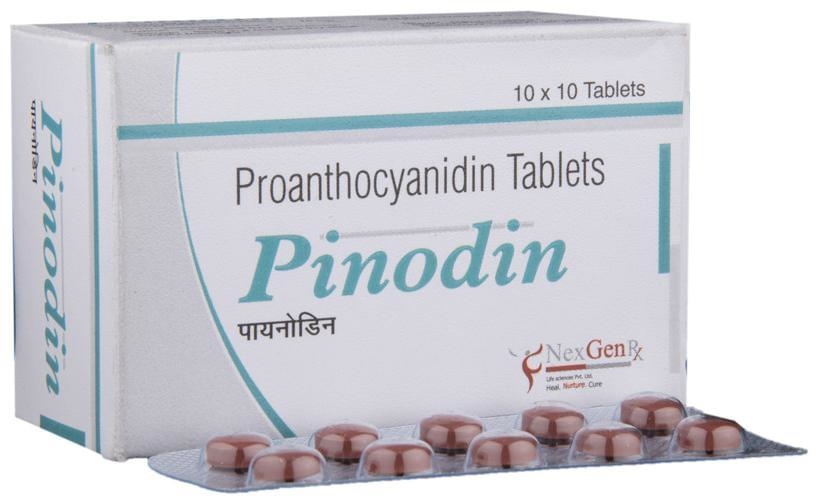Proanthocyanidin
Proanthocyanidin, also known as pycnogenol, is a group of bioactive compounds found in various plants, including pine bark and French maritime pine. These compounds have potent antioxidant and anti-inflammatory properties, making them beneficial for a range of health concerns.
One of the primary uses of proanthocyanidin is for the management of chronic venous insufficiency, a condition that causes swelling, pain, and heaviness in the legs due to poor blood flow. By improving blood circulation and reducing inflammation, proanthocyanidin can alleviate symptoms and promote overall leg health.
Additionally, proanthocyanidin has been shown to possess antioxidant effects that may help protect against oxidative stress and damage caused by free radicals. This can be beneficial in preventing or reducing the impact of various age-related diseases and chronic conditions, such as heart disease and dementia.
Furthermore, proanthocyanidin may support cardiovascular health by enhancing endothelial function, which is the ability of the blood vessels to relax and dilate. This can improve blood flow and reduce the risk of cardiovascular issues like hypertension and atherosclerosis.
Proanthocyanidin may also exhibit anti-inflammatory properties that can help alleviate symptoms of allergies and respiratory conditions like asthma. By reducing inflammation and modulating the immune response, proanthocyanidin may provide relief for those suffering from allergies and respiratory issues.

Showing all 3 results
Showing all 3 results


